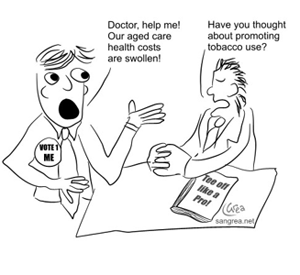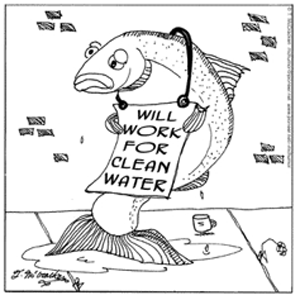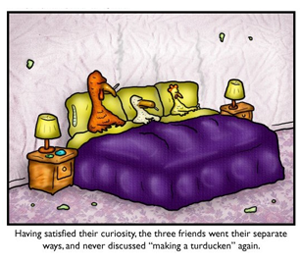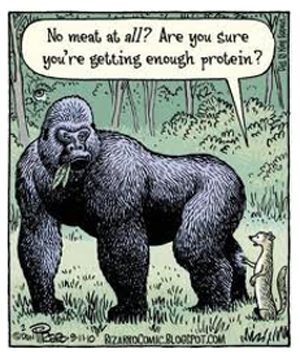Bookshelf
There are many great books addressing many reasons to live compassionately. On this annotated bibliography, books are listed alphabetically by author within the following categories:
- Economic
- Environment
- Ethical
- Health.
Economic
 Simon, David Robinson, Meatonomics: How the Rigged Economics of Meat and Dairy Make You Consume Too Much – and How to Eat Better, Live Longer, and Spend Smarter, September 2013. Available on Amazon.
Simon, David Robinson, Meatonomics: How the Rigged Economics of Meat and Dairy Make You Consume Too Much – and How to Eat Better, Live Longer, and Spend Smarter, September 2013. Available on Amazon.
This book focuses on the economics of animal food production and finds that it costs taxpayers about $414 billion/year in subsidies, healthcare costs, and environmental costs (what economists call externalities, or costs not paid for by producers). At this rate, every $1 of animal products sold imposes almost $2 on hidden costs on the rest of us. If producers paid these costs, a $4 hamburger would cost about $11. While you might choose compassionate living because of health, ethical, or environmental reasons, this book uses rigorous economic analysis to show the actual cost of using animals for food.
Environment
 Most people are unaware of the detrimental environmental impact of eating animals and their fluids. Here is a sample of scientifically-researched facts about consuming animals for food:
Most people are unaware of the detrimental environmental impact of eating animals and their fluids. Here is a sample of scientifically-researched facts about consuming animals for food:
- Animal agriculture is the leading cause of species extinction, ocean dead zones, water pollution, and habitat destruction. Source: Food and Agriculture Organization of UN
- Animal agriculture is responsible for more greenhouse gases emissions than all transportation combined. Source: Food and Agriculture Organization of UN
- Growing feed crops for livestock consumes 56% of water in the US. Source: Worldwatch.org
- One hamburger requires 660 gallons of water to produce (the equivalent of 2 months of showers). Source: EPA blog.
- 1,000 gallons of water are required to produce 1 gallon of milk. Source: EPA.
- A farm with 2,500 dairy cows produces the same amount of waste as a city of 411,000 people (and human waste is processed through sewer systems – cows waste is not). Source: EPA.
- Land required to feed one person for one year:
- Vegan: 1/6 acre
- Vegetarian: 6x as much as a vegan
- Meat and dairy consumer: 18x as much as a vegan. Source: Earthsave.
- Each day, a person who is vegan saves 1,100 gallons of water, 45 pounds of grain, 30 sq. ft. of forested land, 20 pounds of CO2 equivalent, and one animal’s life. Source: Waterfootprint.org.
The books and web site below will show you the science behind these facts and how our eating choices are killing the planet.
- Oppenlander, Richard, Comfortably Unaware: What We Choose to Eat is Killing Us and Our Planet, November 2012. Available on Amazon.
Food choices matter in areas of global depletion: we use natural resources that cannot be replaced because of our food choice. Richard Oppenlander shows how our daily food choices result in the depletion of fresh water, oceans, wild life, air quality, top soil, and other resources needed to sustain life on this planet. While you might choose low impact light bulbs, energy efficient shower heads, and low-flow toilets, your footprint on this earth is most affected by your daily food choices.
- Oppenlander, Richard, Food Choice and Sustainablity: Why Buying Local, Eating Less Meat, and Taking Baby Steps Won’t Work, November 2013. Available on Amazon.
Many writers talk about how buying local helps our environment and many of us dutifully and conscientiously purchase from local sources. However, this is simply a myth, as documented in this book by Richard Oppenlander with impressive scientific references.
- Steele, Kelsey A, Good Green Vibes, September 2014, web site at www.goodgreenvibes.org .
Safe Haven volunteer (Kelsey maintains the Safe Haven Facebook page) designed and developed a web site showing the environmental impact of food choices. On her site, click the Food icon and then explore how what you eat affects our air, our water, and our hearts. The Spreading the Word area shows favorite sources of environmental information in social media sites, movies and books.
Ethical
 Most of us naturally abhor violence and we are sympathetic to the suffering of sentient beings who are physically weaker than us: children, older people, dogs, cats, and the animals we use as food. Somehow we rationalize our consumption of animals as either “I don’t want to know what happened to the dead animal on my plate” or “This is the natural order of things … animals eat other animals.” As we learn more, we come to realize that humans do not need to eat animals to survive and the amount of violence, suffering, slaughter, and pain of sentient beings needed to enjoy a dead animal on a plate is not worth it. Below are some books that explore the ethical dilemmas of eating animals and their fluids.
Most of us naturally abhor violence and we are sympathetic to the suffering of sentient beings who are physically weaker than us: children, older people, dogs, cats, and the animals we use as food. Somehow we rationalize our consumption of animals as either “I don’t want to know what happened to the dead animal on my plate” or “This is the natural order of things … animals eat other animals.” As we learn more, we come to realize that humans do not need to eat animals to survive and the amount of violence, suffering, slaughter, and pain of sentient beings needed to enjoy a dead animal on a plate is not worth it. Below are some books that explore the ethical dilemmas of eating animals and their fluids.
- Colb, Sherry F., Mind If I Order The Cheeseburger?: And Other Questions People Ask Vegans, June 2013. Available on Amazon.
There are many conversations between vegans and omnivores and they often devolve into misunderstanding. Law Professor Sherry Colb takes all points seriously, such as, “Don’t plant have feelings too?” and “Don’t animals eat other animals?” Her answers are reasoned, respectful of both sides, and often humorous.
- Dawn, Karen, Thanking the Monkey, April 2008. Available on Amazon.
Karen Dawn writes for the Washington Post and her own blog, Dawn Watch at http://www.dawnwatch.com/ . She uses humor and opinion pieces in her work as an animal activist. However, her work is well-researched and she covers such things as using animals for scientific testing of drugs and products, for entertainment, as pets, and for food.
- Joy, Melanie, PhD., Why We Love Dogs, Eat Pigs, and Wear Cows. September 2011. Available on Amazon.
Professor of Psychology and Sociology at University of Massachusetts, Melanie Joy explores why we unthinkingly love some animals (think dogs and cats) while torturing, slaughtering, and eating other animals (think cows, pigs, chickens). She discusses how most human societies have 6-8 animals used for food while other animals are loved. For example, in South Korea, dogs are commonly eaten; in India, cows are never eaten.
- McWilliams, James, The Modern Savage: Our Unthinking Decision to Eat Animals, January 2014. Available on Amazon.
Many economically privileged people think it is okay to eat animals and their fluids as long as they are sourced from organic, free-range, antibiotic-free, humane, small, family farms. Blogger James McWilliams challenges that assumption with his concept of the “omnivore’s contradiction.” Food writers will often sensitively write about animal sentience and then say they only eat “happy animals” from small farms who have had good lives and one bad day. Beautifully, sensitively, and rationally written, this book might help you understand what really goes on in both small family farms and large corporate entities. Follow McWilliams’ two blogs: James McWilliams (great conversations about a variety of animal rights issues) and The Daily Pitchfork (which challenges articles in the media). You can also read a summary on our blog.
- Masson, Jeffrey Moussaieff, The Face on Your Plate: The Truth About Food, April 2010. Available on Amazon.
This book presents a stark account of how the daily decisions we make to eat animal flesh and fluids affects our sense of morality, our planet, and our health. Sparing no details of the treatment of animals raised and then slaughtered for food (meat, dairy, eggs), this book refuses to sugar coat the reality of our daily choices.
- Robbins, John, No Happy Cows, April 2012. Available on Amazon.
This is a series of essays by John Robbins (from the family who founded ice cream producer Baskin-Robbins). He talks about the politics of food, undercover operations in feed lots, slaughterhouses, and the relationship of humans to animals. Many long-time plant-eaters attribute John Robbins’ books such as The Food Revolution and Diet for a New America, as their first sources of information about the misuse of animals and the ethical, health, and environmental consequences.
- Yourofsky, Gary, see this great website at http://adaptt.org/ .
If you are looking for information about plant-based diets, you can’t go wrong with Gary Yourofsky’s web site. It is filled with information and even a counter of the number of animals slaughtered while you are on the site. There are many great links to talks, essays about ethics, and information about health and environmental impact of food choices. We have a link to one of his videos, “The Greatest Speech You Will Ever Hear,” in our Compassionate Living>>Compassionate video section.
Health
 If you are looking for scientific, evidence-based research on the effects of diet on human health, the books listed below are among the best. The authors, with impeccable credentials, separate the myths of nutrition from the facts and help us focus on the scientifically-proven healthiest ways to eat: a whole food, plant-based diet with no added oils.
If you are looking for scientific, evidence-based research on the effects of diet on human health, the books listed below are among the best. The authors, with impeccable credentials, separate the myths of nutrition from the facts and help us focus on the scientifically-proven healthiest ways to eat: a whole food, plant-based diet with no added oils.
- Campbell, T. Colin and Thomas M. Campbell, The China Study: The Most Comprehensive Study of Nutrition Ever Conducted And the Startling Implications for Diet, Weight Loss, And Long-term Health, May 2006. Available on smile.amazon.
This is the book that started it all! Written by T. Colin Campbell, Ph.D and Professor of Nutrition at Cornell University and his son Thomas, this book clearly explains the science of plant-based diets based on lab results, epidemiological studies, and Campbell’s personal journey from providing more protein to hungry children in the Philippines to studying cancer rates in mainland China. The last third of the book is particularly interesting and addresses the question of “Why don’t we all know this important, scientific information?” Visit the T. Colin Campbell Center for Nutrition Studies at http://nutritionstudies.org/ .
- Campbell, T. Colin, Whole: Rethinking the Science of Nutrition, May 2014. Available on Amazon.
Ph.D. nutritionist Colin Campbell talks about “reductionist thinking” or nutritionists’ habit of reducing the complexity of food into single nutrients (such as vitamin C, omega-3s, etc.). While it is easier to study and talk about single nutrients, it is well-known that food contains tens of thousands of nutrients that work together and we are better served by taking a holistic view of food. His nutritional advice is simple: eat a whole foods, plant-based diet for optimal health. However, his analysis of why we like to reduce everything to simple elements rather than the more realistic complexities of nature is compelling.
- Campbell, Thomas, The Campbell Plan, May 2015. Available on Amazon.
- By the son and co-author of The China Study, this book provides updates to the original research. We love the humility in the book; when the author doesn’t have solid research to support his theory, he says so. He breaks food into three simple categories: animal, plant, processed plant fragments. For best health, stick to plant food.
- Davis, Garth, MD., Proteinaholic: How our obsession with meat is killing us and what we can do about it, HarperOne, 2015. Available on Amazon.
Garth Davis, MD, is a leading bariatric surgeon.He deals with obese patients on a daily basis. However, he did not question the conventional nutritional information to eat more protein until his own health was at risk in his late 30s. He did exhaustive research on what science says about the healthiest people on the planet and wrote this book to share is findings. In his research and in his practice, he realized that health comes from a diet of plants, not from a diet of animal food.
- Esselstyn, Caldwell B., Jr, Prevent and Reverse Heart Disease: The Revolutionary, Scientifically Proven, Nutrition-Based Cure, January 2008. Available on Amazon.
Internationally known surgeon, researcher and former clinician at the Cleveland Clinic, Caldwell Esselstyn shares the results of his 20 year study of heart patients that showed that a whole food, plant-based diet can both prevent and reverse heart disease, the number one killer of Americans (50% of Americans will die from heart disease). Esselstyn shows how heart disease is a nutritional disease resulting from the Western diet of fat and animal products. Note that Esselstyn has recently published a follow-on study involving 200 heart patients showing that diet changes have far greater and better results than any drugs or surgery for heart issues. Visit Dr. Esselstyn’s Prevent and Reverse Heart Disease website at http://www.dresselstyn.com/site/ .
You can also see his wife, Ann, describe in her funny and clear way, the “whys” and “hows” of eating plant perfect here.
- Greger, Michael, How Not to Die: Discover the Foods Scientifically Proven to Prevent and Reverse Disease. Available on Amazon.
By the author of the www.nutritionfacts.org web site, this book shows detailed science/evidence behind the recommendations to heat more plants.
- McDougall, John, The Starch Solution: Eat the Foods You Love, Regain Your Health, and Lose the Weight for Good!, June 2013. Available on Amazon.
John McDougall, MD, has been a tireless advocate for a whole-food, plant based diet with no added oils. All of his books are excellent. In this, his most recent book, McDougall shows how carbs are not the enemy but rather how they form the basis of healthy diets around the world for tens of thousands of years. This book includes a start plan, weekly menu planner, and almost 100 recipes. Visit his website at www.drmcdougall.com for free advice and up-to-date research.
- Stone, Gene (editor), T. Colin Campbell (Foreword), Caldwell B. Esseltyn (Foreword), Forks Over Knives: The Plant-Based Way to Health, June 2011. Available on Amazon.
This popular book uses simple language to show how you can protect yourself from the leading causes of death in the United States: heart disease, diabetes, and cancer. A whole-food, plant-based diet with no added oil supports health. This book includes commentary by leading experts, success stories, how-to’s, and over 125 delicious recipes from famous chefs. There are several cookbooks and even a web site based on this work, http://www.forksoverknives.com/ .
